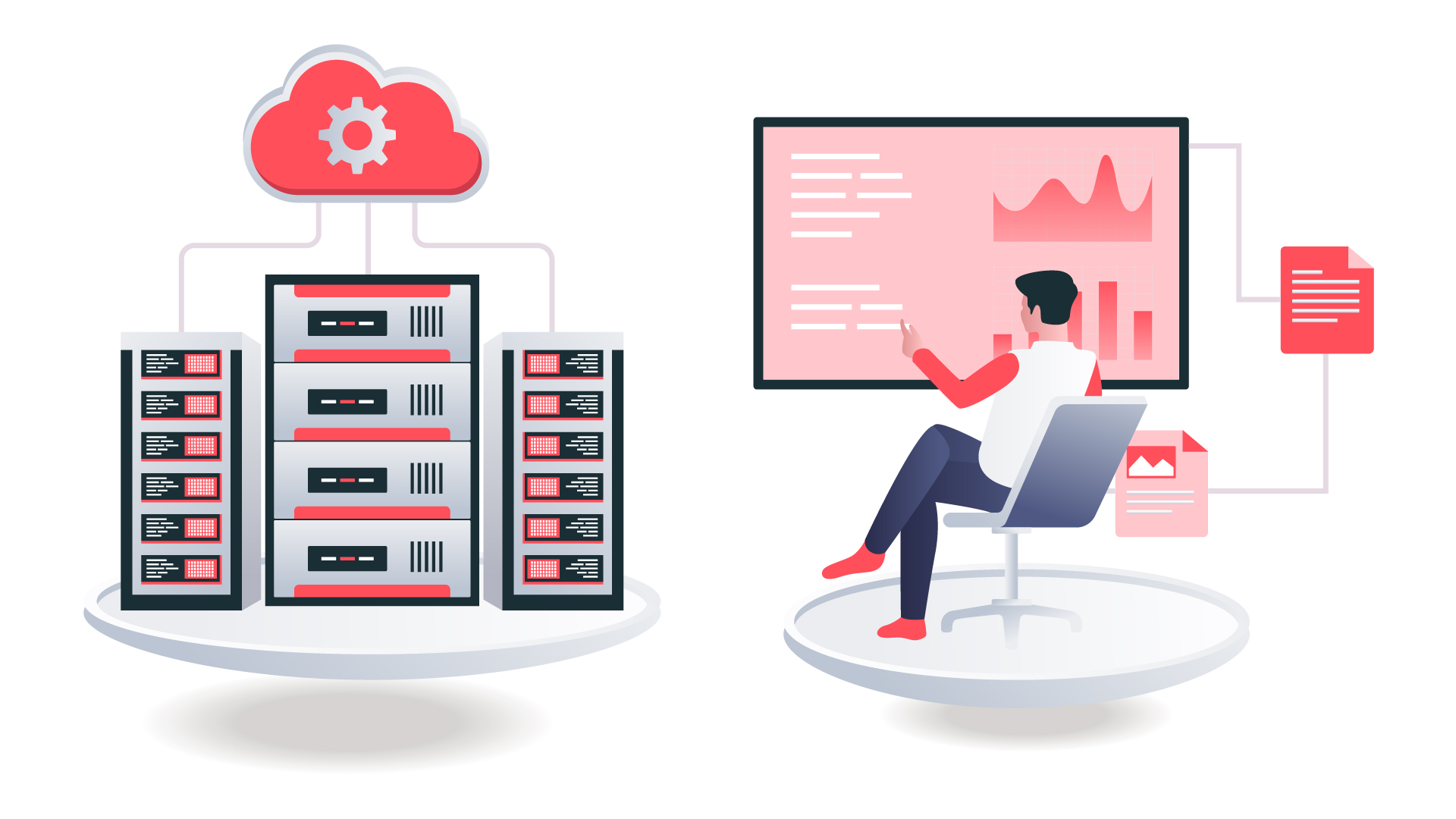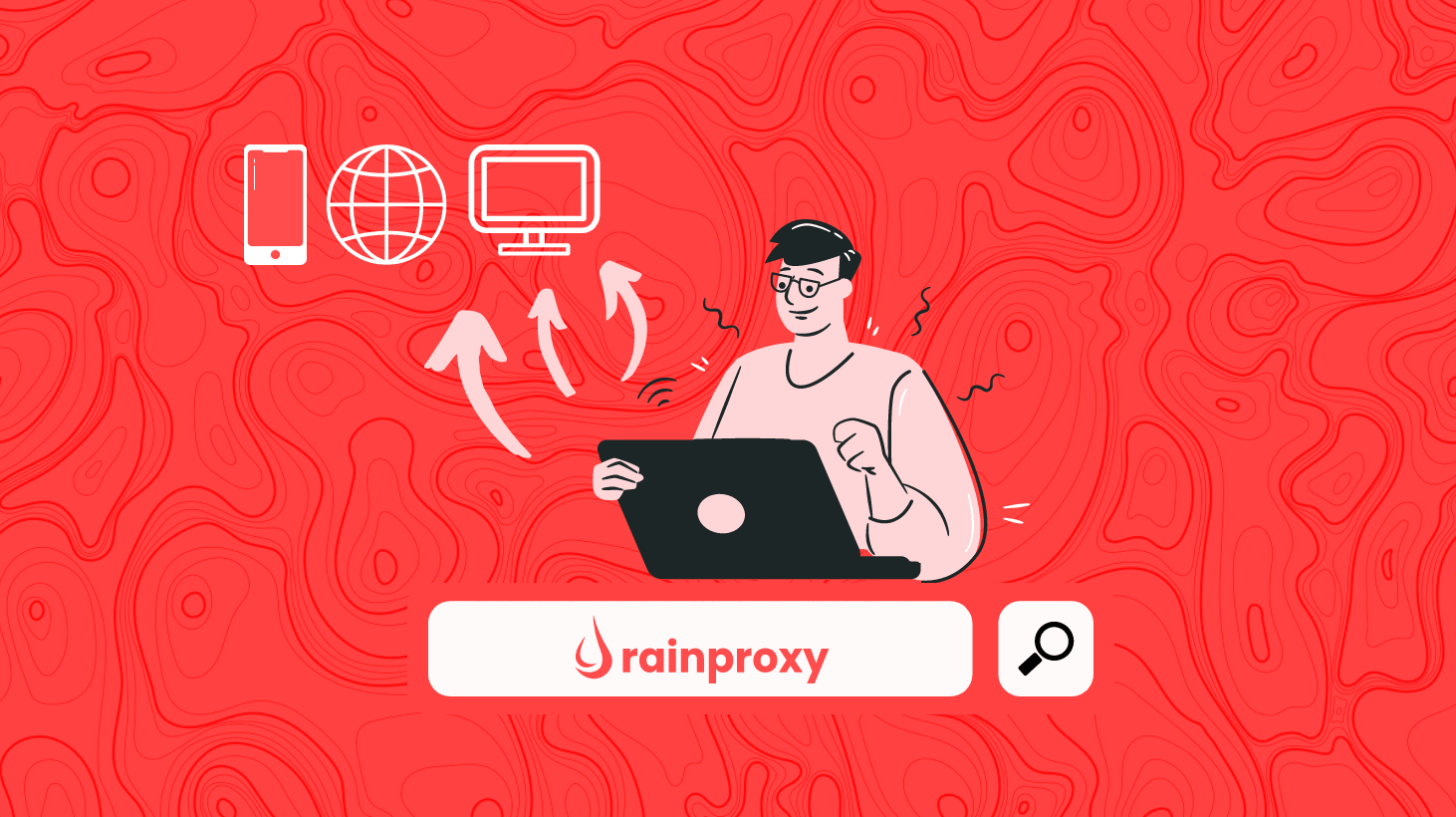
The Ultimate Guide to Proxy IP Types
Feb 04, 2023
The Ultimate Guide to Proxy IP Types
Anyone, from individuals to small enterprises to major corporations, can utilize a proxy. It assists with data extraction from websites, IP protection from blocking when scraping, malware protection for computers, traffic balancing, etc. There must be various IP types with such flexible functionality.
A proxy server acts as a bridge between an Internet-connected device and a particular website. A proxy conceals the user's identity by masking their IP address.
A proxy server receives requests from users. The proxy verifies that the data configuration complies with the user's initial proposal, scans the traffic for malicious activity, and then transmits the returned data to the user. The user's real IP is hidden from the target website.
Need for Proxy Serves
A proxy has several functions. It offers an additional layer of security by screening the traffic and an extra layer of user anonymity by disguising their IP address and physical location. A proxy also enhances load balancing, compresses, and caches files to speed up and optimize the performance of devices.
A proxy also enables getting over firewalls, geo-restrictions, and captchas. Tasks like price analysis, SEO monitoring, data scraping, etc., would be significantly easier with a proxy. Proxies can help users in numerous ways, affecting the accessibility, security, and speed of traffic. They can also greatly assist when scraping websites for data because they stop your IP address from being blocked or blacklisted.
However, the proxy must be configured and chosen correctly to function as the user needs. This article will examine the many proxy kinds according to their IP address obtaining method, traffic flow, level of anonymity, and service.
What Is A Dedicated Server?

A double kind of IP address called a dedicated IP address can be used to host a site or an application. You may access additional server functions with a dedicated IP address, including hosting your SSL Certificate and benefiting from improved security because you are the only IP user.
This suggests that you have some control over site traffic and can keep things running smoothly. The File Transfer Protocol (FTP) uses dedicated IP addresses to enable your clients to connect to and download data from the server.
What Are Different Types of Proxy Servers?
Public Proxies
Anyone can use public proxies, which give their users their IP address to conceal their identity. Although inexpensive and straightforward, this proxy puts its customers at greater risk of having their data compromised.
Shared proxies
This proxy allows numerous users to interact with it at once by giving the users a shared IP address.
Residential proxy
This proxy provides the user with a traceable IP address that points to a particular physical device in which all requests are evaluated and forwarded.
Anonymous proxy
By evaluating the user's request while concealing their identity, anonymous proxy servers seek to mask online activities.
High anonymity proxies
Essentially an anonymous proxy, this one hides the user's identity further. Before the proxy tries to connect to the target site, the user's data is removed to achieve this.
Transparent proxies
To avoid being discovered by the people it is enforced on, transparent proxies can be employed. This kind of proxy is helpful for organizations that want to establish a proxy without making their employees aware of it.
Datacenter proxies
The proxy server that evaluates and redirects user requests may be physically situated in a datacenter. It is connected to a different organization via a datacenter rather than an internet server.
Rotating proxies
Users using rotating proxies receive an IP address distinct from the one assigned to the prior connected device.
Reverse proxies
The reverse proxy is positioned ahead of the web servers and evaluates and routes requests from browsers to the web server rather than being placed "in front" of the users. At the edge networks of the web server, the proxy accepts requests from users and forwards them after they receive a response from the original server.
Types of Proxies Based on Location of IP
Datacenter Proxies
These proxies are created on servers that are solely used for proxy management. The servers have been appropriately set up to maximum speed with high bandwidth connectivity and specialist software. These lead to elite proxies in terms of anonymity and have quick rates and low ping. Datacenter proxies are ideal for most commercial applications, particularly for bots.
The site diversity for datacenter proxies is typically substantially lower because this requires the supplier to have a datacenter in every one of the places, they want to give IP addresses.
Residential Proxies
These proxies connect to open residences and equipment in numerous cities and nations since they employ IP addresses directly issued by ISPs (Internet Service Providers). As a result, it is far more difficult for websites to recognize proxy users and prohibit them. This virtually makes the proxy indistinguishable from a real user. When web scraping, residential proxies are frequently used to rotate IP addresses, which is quite helpful. However, these IPs are more expensive because they must be purchased or rented from ISPs.
Additionally, more expensive static and mobile proxies are more specialized versions of residential proxies. Mobile proxies use devices linked to a mobile network connection, as opposed to static proxies, which use a single IP address as their home address.
Types of Proxies Based on Traffic Flow
Forward Proxy
Forward proxies are a common type of proxy where the client creates a different IP address to access restricted websites or to conceal and mask their identity. Additionally, this can be configured to affect every user on a network, approving or rejecting their requests to access websites and saving them for quicker access.
Reverse Proxy
Reverse proxies safeguard servers in the same way that forward proxies safeguard clients. Therefore, whenever a user submits a request, the proxy submits it on the user's behalf rather than sending it directly to the server. Load balancing is also a feature of these proxies, in addition to security and caching.
Types of Proxies Based on Service
Public Proxy
Anyone with a working internet connection can utilize these proxies, typically located online in different proxy lists. Although they are typically free, security can be a concern because it needs to be made clear who has access to the user's browsing history. After all, their moderators are frequently anonymous. Due to the high volume of concurrent users, they are often unstable and prohibited by websites. The amount of traffic may also slow down broadband.
Private Proxy
A single user only utilizes a private or dedicated proxy. This prevents lag, delay, and traffic congestion. This option is the priciest and can cost up to five times as much as a shared proxy server. Additionally, maintaining the same IP for a prolonged length of time can adversely affect anonymity.
Shared Proxy
These are more expensive than public proxies but are still more affordable. They are shared by several users that pay for a particular proxy service, which includes several features, including customer assistance if something goes wrong. Since the terms of service must be accepted by both the user and the business, they are more dependable and secure. However, if many of its users engage in traffic-heavy activities, a shared proxy may experience speed concerns.
Conclusion
Whether ordinary users or business owners, Rainproxy wants to inform our clients about the many cyber threats that could affect their operations. This includes time and money-saving, cost-effective prevention techniques, and rising trends in some risks.
Additionally, business owners, employees, and regular users could forget to run routine scans to check the condition of their operating system, which thieves might exploit to achieve unauthorized access by taking advantage of underlying flaws that are only sometimes obvious.




